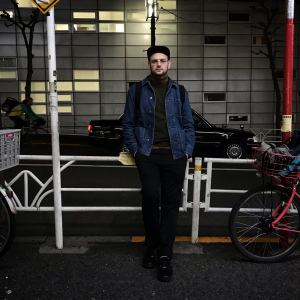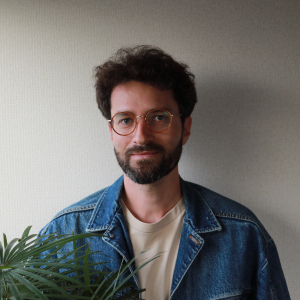PROGRAMRESEARCH FELLOWS
Institute of Contemporary Arts Kyoto
RESEARCH FELLOWS
Arieh Rosen
Nationality :
Israeli / British
Activity base/place :
Tokyo / Kyoto, Japan
Enrolled :
2022 Spring
Research theme :
A deep and wide exploration of the unique and yet under-researched Japanese craft of broom making. The historic roots of the tool and its development in relation to Japanese society and culture and the connection and interpretations in contemporary art.Outline :
Kyoto, being a key meeting point between ancient tradition, religious hubs, diverse cultural communities and a vibrant contemporary art scene will be the focal point of my research. Through the extremely mundane tool and object - a broom - its many forms, uses, myths and users I wish to explore different elements in Japanese society. I wish to focus on discovering and developing contemporary art interpretations to the object as well as to the notion.
Cristina Gómez-Lechón Quirós
Nationality :
Spain
Activity base/place :
Valencia (Spain)
Enrolled :
2023 fall
Research theme :
Philosophy in CinemaOutline :
My research is focused on the figure of women in Asian Cinema through the character of Noriko by Yasujiro Ozu. Throughout the research I address the importance of classical Japanese cinema as a means of portraying universal scope issues taking into consideration the increasingly need to deepen our understanding of the ever more globalised film-making region of Japan.
Daniel Abbe
Nationality :
USA
Activity base/place :
Kyoto
Enrolled :
2022 Spring
Research theme :
My in-progress doctoral dissertation advances a corporeal theory of the photographer, through the photographs and essays of Nakahira Takuma (1938-2015).Outline :
I am exploring how the body itself plays a role in the practice of photography. From what positionality, in other words, do photographers engage with the world? Nakahira Takuma was extremely conscious of Japan’s imperial history, so for him being a photographer was something to be continually questioned. As a scholar working in the field of photography history, I see my research as a corrective to prevailing approaches to the medium that privilege ontology, or that otherwise take the more or less philosophical question, “what is photography?” as their starting point. Instead, I want to begin from the embodied position of the photographer.